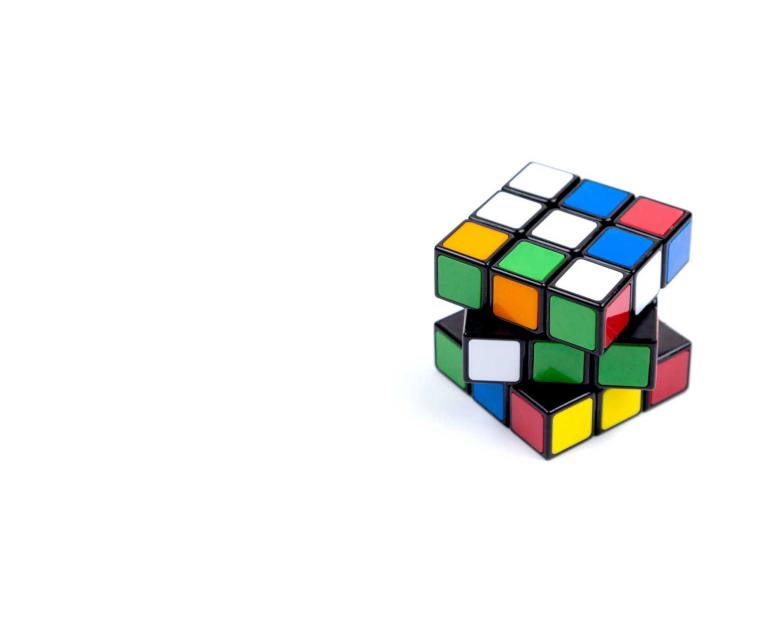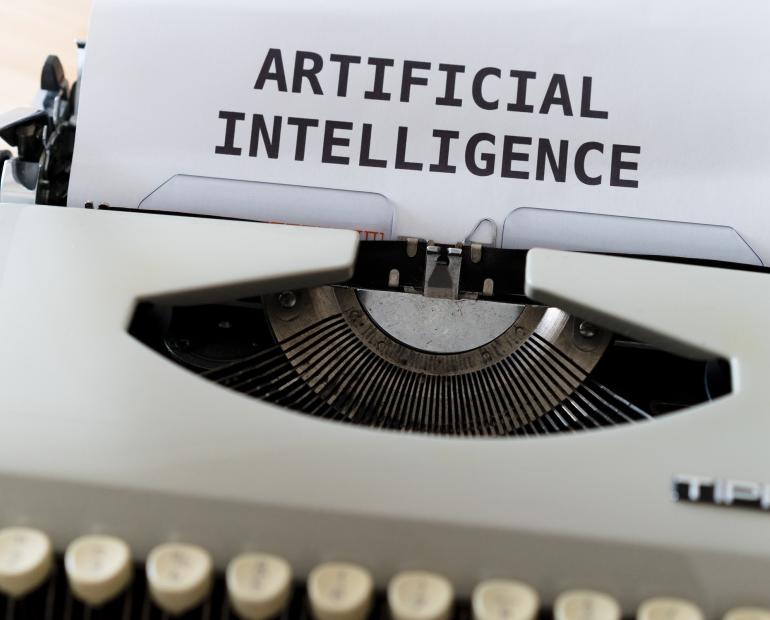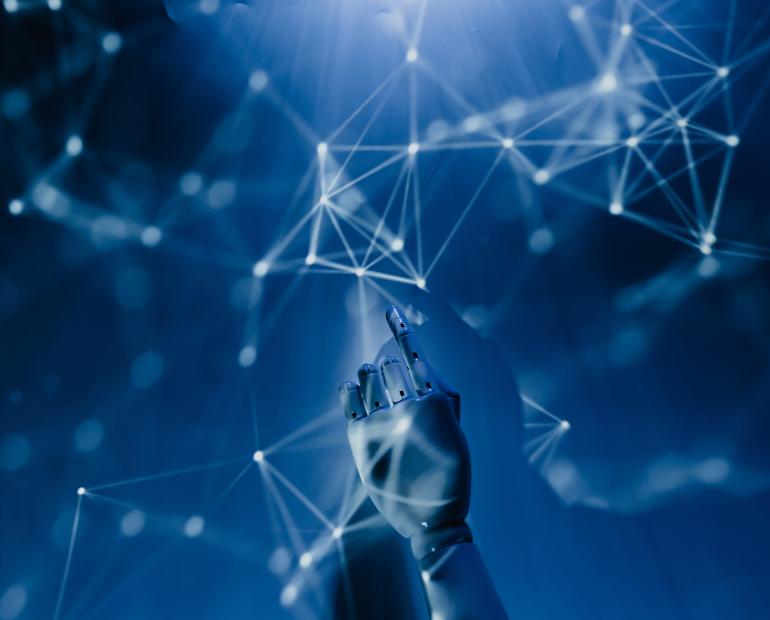What’s the first thing you think of when someone says, “artificial intelligence”?
Robots?
Self-driving cars?
Voices assistants?
Artificial intelligence, or AI, is not something from the future. If you regularly use a cellphone and the internet, chances are that artificial intelligence is already a part of your daily life. You just might not be aware of it.

So, what is it?
Very simply, AI technology is when computers mimic tasks that are usually associated with humans. This includes things like making suggestions or predictions, recognizing what is in an image, recognizing what is being said or written by someone based on how it has been programmed, developing strategies in games, or even creating music or art.
And this technology is already being used in so many ways, from recommending what song you should listen to next, suggesting a quicker route to get from A to B, to the latest app designed to improve your selfies.
AI technology has the potential to help us solve some of the biggest problems facing humanity – like climate change or new diseases – but it could also create new problems if we’re not careful.
Scroll down to learn more.
What do children & youth think about AI?
In 2020 UNICEF consulted 245 adolescents from Brazil, Chile, South Africa, Sweden, and the United States to learn about their views and understanding of AI systems.
Find out what they had to say in this new report from UNICEF.
“In general, the digital world and AI world has not been adapted for adolescents, because it is mostly created only by adults. So, clearly, there is an adult-centric bias ...."
- AI WORKSHOP, CHILE

AI and Your Rights
You might be thinking, why do I need to be concerned about AI when there’s so much going on?
1. Impact on our lives
More and more, AI is going to affect all parts of our lives – education, healthcare, communication, transport, jobs and more. When we know how the technology works, we can advocate for companies and governments to take the necessary steps to prevent negative impacts, maximize the positive effects on our human rights.
For example, in some places around the world, AI technology is being used to determine whether someone should be admitted to a university or receive a job interview. If this technology is not programmed carefully to avoid prejudices, some people may be denied an opportunity. Or when facial recognition technology is used to fight crime, if it doesn’t work properly it can lead to innocent people being arrested.

2. AI technology is created by people
AI technology is created by people which means, it can sometimes be affected by the ways in which we see the world – our prejudices and the gaps in our knowledge. It is helpful for us to think about the people creating the technology:
-
Do they represent diverse backgrounds, places, and experiences? Do they have prejudices that could impact the technology?
-
Are they willing, or able, to explain to the public how the technology works?
-
Do they fully understand how their work may impact people's lives ?
-
Are they considering the needs of children and looking out for their best interests?
3. AI technology relies on a lot of data about us
Finally, AI technology also relies on a lot of data about us. Whenever we use our devices or the internet, we leave behind a digital footprint – the topics we read the most in the news, the things we buy online, the people we talk to the most. This data can be used by companies to create new technologies and impact on our right to privacy.

Your AI Questions Answered
This means we need rules which can help maximize the good and minimize the bad outcomes. But who makes the rules? Do innovators and companies creating new technologies care about the rules? And what should happen to those who break the rules?
Right now, UNICEF is working with governments and companies to help them create and improve rules that protect children’s rights. Learn more about that here: https://www.unicef.org/innovation/GenerationAI
But it is important to remember that this will also lead to new types of jobs being created. Jobs that involve personal interaction, empathy and care, are unlikely to be impacted in the near future. What’s important is that young people are well-prepared and equipped with the rights skills to enter this dynamic job market.
But it is important that we are all educated and aware of the presence of AI in our lives, so as the technology evolves, we can hold companies and governments accountable.
Learn more
If you're interested in knowing more about AI check out these resources:
- Youth and Media at the Berkman Klein Center for Internet & Society
- MIT AI education website
- The A-Z of AI from Google and the Oxford Internet Institute
- AI for Oceans from Code.org
- Elements of AI course by Reaktor and the University of Helsinki





